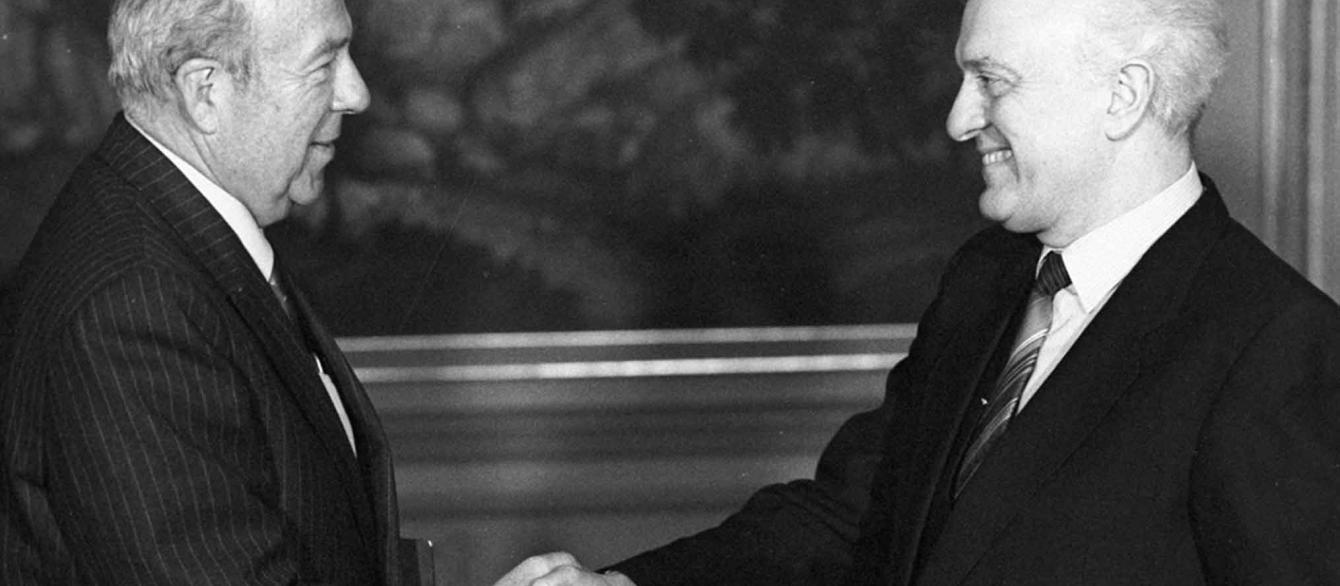States tend to sever relations in times of international conflict. The United States did this with Cuba in 1961, Iran in 1980, and Syria in 2012; Egypt, Saudi Arabia, Bahrain, and the United Arab Emirates did similarly with Qatar in 2017. These decisions are based on principle and meant to declare a country’s values. However, cutting ties also jeopardizes information collection, the ability to influence policy on the ground, and the opportunity to collaborate across borders on scientific or technological breakthroughs that no one country can achieve on its own.
In the final installment of our series of lessons learned from the late Secretary of State George Shultz, we can consider his frequent advocacy for more dialogue, rather than less, in times of crisis. His advice is currently heeded by American and European leaders who continue to leave the door open for dialogue and diplomacy, in spite of “an aggression by the Russian Federation against Ukraine in violation of Article 2(4) of the United Nations Charter,” as adopted by the UN General Assembly on March 2nd.General Assembly Resolution ES-11/1, Aggression Against Ukraine, A/RES/ES-11/1 (2 March 2022), available from https://undocs.org/en/A/RES/ES-11/1 Shultz’s experience demonstrated that open doors, however difficult they were to accept at the time, facilitated progress that was previously inconceivable.
Lesson Three: Always Maintain Channels for Dialogue
At the Negotiation Task Force we distinguish between negotiation “at the table” and “away from the table” to underscore that tremendous progress can be achieved beyond formal negotiations. Shultz recognized that closing all forms of dialogue prevents parties from building relationships “away from the table” or exchanging information that creates opportunities for dealmaking. Promoting dialogue can also encourage trust and progress on negotiation “at the table.”
Shultz utilized arms control talks between Reagan and Gorbachev as a gradual confidence-building measure, ultimately creating the trust needed to shift the paradigm from “mutually assured destruction” to “mutually assured survival.”Stephan Kieninger, “George Shultz and the Road to the INF Treaty. Process and Personal Diplomacy,” Hoover Institution, Dec. 11, 2020, https://www.hoover.org/research/george-shultz-and-road-inf-treaty-process-and-personal-diplomacy Parallel to larger negotiations, Shultz believed in addressing minor problems before they could affect the broader bilateral relationship. These practices constituted his idea of “realistic engagement,” keeping working lines of communication open in case of a crisis. Kieninger, “George Shultz and the Road to the INF Treaty. Process and Personal Diplomacy.”
Even at the height of the Cold War, when relations were often characterized by mutual contempt and distrust, we achieved important advances through a commitment to maintain lines of communication, albeit nonpolitical ones. In 1956, the U.S. State Department facilitated collaboration between American virologist Dr. Albert Sabin and two Soviet virologists, Drs. Mikhail Chumakov and Anatoli Smorodintsev, which produced the oral polio vaccine, practically eradicating this debilitating disease around the world.
As we watch Ukrainians driven from their homeland and see Ukrainian infrastructure destroyed by unmitigated aggression, the world demands a strong response to hold Putin’s regime accountable. It is challenging to imagine what productive dialogue between the United States and Russia would look like in the short-term. However, reflecting on Secretary Shultz’s negotiation style and the cooperation it facilitated provides me with hope that bilateral achievements can still be possible at a time that otherwise feels hopeless.




